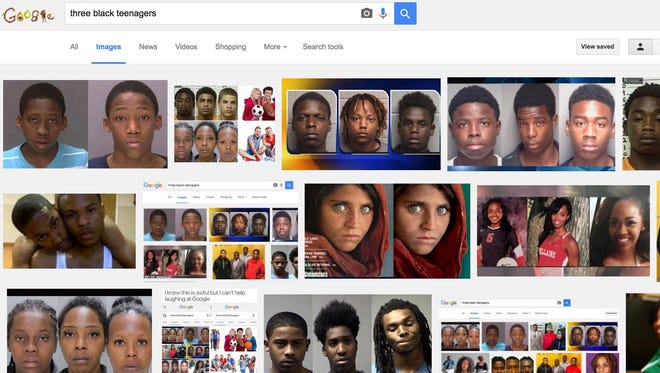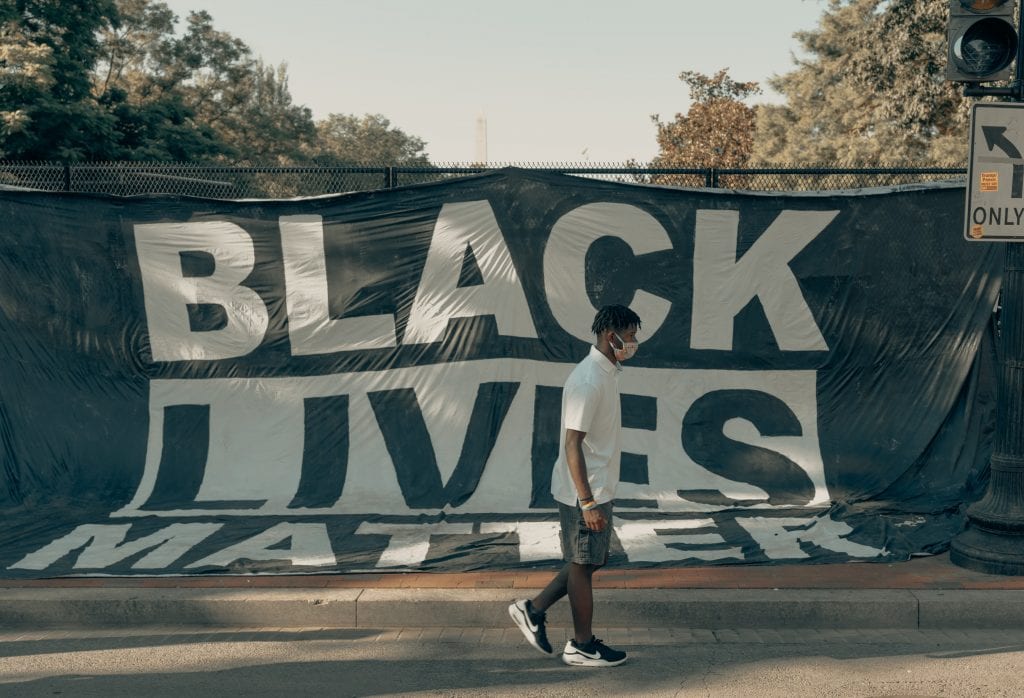A lot has happened to me in a short space of time.
In January 2019, I spent what felt like the longest month of my life wondering if I’d ever get out of my horrible job and into my career. I’d spent 8 years trying to get into digital marketing after a summer internship at a record label and subsequent years running my own blogs and doing odd copywriting jobs.
And then I got a call from a recruitment agency, went to the interview, got a call back for a second, and got the job. I’ve since moved roles, established a name for myself in the industry, appeared on podcasts, written for top publications in my field and will be doing my first ever talk this month.
But before all that, I spent a lot of my time looking through agency websites for email addresses to send my speculative emails to and the teams that worked there. There was a common theme amongst all of them: no Black faces.
I wasn’t surprised but I was still disheartened. Why was this the case? Did Black people not work in digital marketing? Were they interviewed for the roles but not deemed suitable? It became a thing I accepted over time but I always returned to those questions, prepared to face the harsh truths that came with them.
Office life
Representation is important when you’re part of an ethnic minority. Growing up, I loved football. I idolised players like Andy Cole, Dwight Yorke, and Tony Yeboah because they were Black and they were at the top of the game. But as a Black adult in an office working in digital marketing, the experience starts and stops at being a minority.
Microaggressions—brief but common forms of communication that can be derogatory towards people from marginalised groups—are an unfortunate part of office life. For Jamar Ramos of Crunchy Links, they were a fundamental reason why he doesn’t miss working in an office:
“The number of racist comments said to me has gone down 100% since I started my own company.”
Some of the microaggressions he experienced included a CEO asking him on first interaction “if he could freestyle rap”, calling him a “fake gangsta” for wearing hats and an agency colleague telling him “all lives matter” when he wore a Black Lives Matter shirt and a department head saying he was “a disgrace to his race” for missing shots on a basketball machine outside his breakroom.
Blogger and photographer Trevor Price said, having worked in various offices in an almost decade-long marketing career, he couldn’t think of a time when he wasn’t either the only Black person in the office or “one of a very small handful”.
So far, you’ve heard opinions from three Black men. But for Black women, the microaggressions are stronger and more insidious as they also cover sexism. Black women are perceived as “sassy”, “bossy”, and “confrontational” when they express assertiveness. They are also severely underrepresented in the C-suite.
Dr. Aisha Holder, a Postdoctoral Psychology Fellow at Columbia University, discussed the microaggressions Black women face at work for LSE. When asked why they aren’t represented more in the C-suite, she called out the “contemporary racism” that rules the behaviour of C-suite level members:
“Contemporary racism is significantly different from blatant acts of discrimination. Modern racism, like racial micro-aggressions, is more likely to be covert, indirect, and ambiguous, thus creating challenges in identifying and acknowledging its occurrence. With the intersection of their marginalized identities of race and gender, black women are particularly vulnerable to negative stereotypes that create barriers to career advancement.”
What might seem like a harmless comment has significant repercussions on Black people’s careers. The snowball effect of microaggressions push them to the macro level and keep Black marketers out of the boardroom, and because of the linear progression path in marketing, that is often the final destination on the promotion ladder.
Gabrielle Ashanti, founder and digital PR specialist at Handnote PR, has experienced her a great deal of microaggressions including being asked about her “changing hairstyles” and “how to do certain afrobeat dances”. She also felt the pressure of having to represent the entire Black race at work especially when it came to planning and executing culturally diverse creative campaigns.
“I remember asking a question in a meeting and one of my colleagues made a remark about me that I’m ‘not the brightest button in the box.’ I was also told by my manager that I ‘do not contribute anything to society’ which was extremely damaging to hear so early in my career.”
Black experiences in digital marketing
As part of my career, I’ve been subscribed to various digital marketing publications and followed a wide range of figures on social media. I did this for 8 years before I entered the industry and it was clear to me that Black voices were non-existent, at least on these channels.
The only time you’d ever hear from Black marketers on a major platform was during Black History Month (which perhaps makes this article an ironic addition) but the truth is, we’ve always been here.
I wrote an article in 2019 called Google Is Not A Meritocracy which surmised that, as the title suggests, Google wasn’t a meritocracy by its warped definition because meritocracies were a myth to begin with. But for many Black marketers, this ideology is alive and well and prevents them from getting jobs, having seats in boardrooms, or having their voices heard on stages amongst their White peers.
When I asked Jamar about his experiences as a Black man in digital marketing, he expressed his consternation towards the industry:
“I hate being Black in digital marketing. When I started Crunchy Links, I told my partners they would get a maximum of 5 years out of me before I left the industry. I’m sick of watching my business partner networking with a potential client, see how happy they are while talking, and how bothered they get once I walk over and join the conversation. I’m tired of the fake callouts about doing ‘better’ with access.”
Trevor remarked on the “general lack of teams with Black team members” in his career and a lack of Black candidates for roles:
“I have just hired 3 new employees and none of the candidates that were sent through by the recruiters were black. The previous round of hiring we did have 1 black candidate come through however I find this a rare occurrence. While this could be down to black candidates not registering to agencies I find this hard to believe and instead believe there is some bias here by recruiters if not the hiring companies.”
Gabrielle said she now makes it her mission to ensure she is credited for her marketing campaign ideas and given recognition for her hard work and team leadership.
“I have no fear in voicing my suggestions or presenting analytical reports to teams full of people who do not look like me.”
She also said there was a lack of Black professionals in the digital marketing space and this was particularly evident when she attended industry events and meetups.
“When you look around the room, you can count the number of Black people on one hand! As a result of racial bias, Black people in digital marketing are very underrepresented and I hope this changes.”
Zenia Johnson, an Account Lead at 3Q Digital, questioned the intentions of diversity & inclusion initiatives at companies where their hiring practices didn’t match up”
“I’ve been working in digital marketing for the last 7 years. My experience is that although there tends to be a lot of talk about a company’s devotion to diversity & inclusion initiatives, or awards will be granted for D&I efforts, a cursory look at hiring practices and leadership teams shows those efforts to be largely performative. This is in stark contrast to the ‘culture’ that we see being promoted by some companies, as trendy, innovative and inclusive, which makes me feel, as a black woman, gaslit. Am I wrong for demanding more from a company that “intends” to do the right thing, but somehow continues to fall short? Why am I the only one here who is seemingly angry about this?”
Racial bias in search

I can’t remember the last time I hadn’t used a search engine for a full 24 hours. It’s naturally part of my job as an SEO but I also use it in my spare time. We all do—questions arise and the answers are a few clicks away. But what happens when you make a search and you’re taken to racist image?
Dr. Safiya U. Noble, Assistant Professor of Communication at the University of Southern California and author of Algorithms of Oppression: How Search Engines Reinforce Racism, wrote an article for Time Magazine entitled Google Has a Striking History of Bias Against Black Girls.
In it, she described her first encounter with racism in search in 2009:
“[…] I was talking to a friend who casually mentioned one day, “You should see what happens when you Google ‘black girls.’” I did and was stunned.”
She detailed how the sexually explicit results that Google returned prompted her to conduct research on “offense and ‘fixes’ through to 2016”. Her argument was that Google’s power to prioritise search results based on relevance and engagement (clicks in this instance) perpetuated “offline” racial bias.
“[…] Google’s dominant narratives reflect the kinds of hegemonic frameworks and notions that are often resisted by women and people of color. We must interrogate what advertising companies serve up as credible information, rather than have a public instantly gratified with stereotypes in three-hundredths of a second or less.”
Is Google’s search algorithm built to be racist? No, but its prioritisation models use machine learning (ML) and the data is clearly biased. Racial bias pervades all industries but in technology, its presence and ferocity is alarming.
Jamar saw similar bias in searches for digital marketers on Google:
“Just search for ‘digital marketers’ and click on ‘images.’ They surface stock photos of white people the most. They continue to tell us we don’t belong. Look at the top lists. How many Black men and women do you see? They’ll try and tell us they did an unbiased survey of digital marketers, but that in itself is biased. The people they’re asking are mostly white men, so they’re gonna get mostly white men in return.”
Trevor said similar about stock photography sites:
“If we look at stock imagery there is very rarely any good examples of stock including black people, this, however, has been improving but it has been slow. Now as people are realising the gap I believe this has been preyed on by those who had libraries ready to go but never used.”
In 2016, ProPublica published an investigation on a ML program that US courts use to predict “who was likely to commit another crime after being booked”.
Black people were rated more likely than White people.
The reason behind the result was down to the program learning from real data based on incarceration rates in the US, where the criminal justice system has treated Black Americans unfairly for decades. And, worse still, it was unreliable:
“The score proved remarkably unreliable in forecasting violent crime: Only 20 percent the people predicted to commit violent crimes actually went on to do so.”
ProPublica found other racial disparities where the algorithm made errors in assessing Black and White defendants at “roughly the same rate” but in ways that favoured White defendants. Notably, the program was more likely to incorrectly flag Black defendants as future criminals and did this nearly twice as much as White defendants who were “mislabeled as low risk more often than Black defendants”.
What does diversity actually mean?
Before we call for more diversity in digital marketing, we need to decide what diversity means and what it looks like. In a detailed review of Jonathan Kahn’s “Race on the Brain: What Implicit Bias Gets Wrong About the Struggle for Racial Justice”, Chanda Prescod-Weinstein suggested that diversity was a “dangerous set up”.
Diversity is big business and its commodification alone is concerning. Many would class a workplace of 50% White men and 50% White women as diverse because of the larger-than-average presence of women. But this isn’t the case.
In Hired’s 2020 State of Salaries report, they found that Black tech workers were offered significantly less than their counterparts.
“The salaries offered to Black candidates, while significantly higher than in previous years, were still the lowest of any racial group and $10k less on average than those offered to white candidates. Perhaps even more discouraging is the fact that both Black and Hispanic candidates continue to expect lower salaries than their white counterparts.”
In the UK, the problem of racial diversity is prominent too. In May, an IPA report revealed that the employees of colour at UK ad agencies dropped over the past 12 months, from 13.8% to 13.7% year-on-year (taken from a total of 24,866 employees). That included only 4.7% of C-suite roles that were held by employees of colour, a 0.8% drop from 2018.
Gabrielle said she often looks closely at digital marketing agencies to see the employees they hire, the positions they hold in the agency and if those agencies are “truly reflecting their claims of supporting racial diversity and inclusion”.
“This can all become very performative and some may deem it as a ‘trend.’ Hopefully this changes and there won’t be 1 or 2 token Black people in digital marketing.”
Industry responses to Black Lives Matter

With responses to any kind of crisis or movement, announcements are gradual and vary in strength. For me, the general response from the digital marketing sector has been poor. Entities such as The Drum and DeepCrawl have laid out the actions they’ll be taking in the future as well as sharing resources for people to help now. But some companies have missed the mark.
Sarah Bird, the CEO of Moz, issued a company statement on 2nd June expressing guilt at its collective silence until then, seemingly conflating Black Lives Matter with “people of colour”, and two token references to influential Black leaders—Maya Angelou and Martin Luther King—to back themselves up.
Digiday has published content regarding Black marketers and their experiences but many of them have been paywalled. In a response to my tweet questioning this stance, Shareen Pathak said:
“We need money so we can pay reporters fair salaries so they want to work here so they keep doing stories and so we can hire more people.”
That seems fair but does it not appear odd that stories of Black trauma would be monetised during the Black Lives Matter movement, with no indication of whether that money would go towards helping Black initiatives or employing more Black writers and reporters?
There has been an increase in Black (and Brown) marketers appearing and being asked to join online talks but the question is, and always will always be: why weren’t we asked before Black people had to be murdered?
Jamar echoed those sentiments:
“Once [Brother] George Floyd was murdered and I started speaking out on Twitter, I went from 67 followers to 207 at time of writing this. I can tell you, of those 40 new followers, only about 10-15 have actually interacted with me. They want proximity to my Blackness. They don’t actually want my Blackness.”
He also thought the majority of response were subpar:
“The black squares, the “we see you, we hear you, we stand with you” statements they’ve put out there are a load of crap. Where were you the last 8 years as this industry has kept me at arm’s length? Why are you just now seeing/hearing/standing? We’ll see where it is in the next few months, but I doubt the industry really cares. They just wanna keep the money flowing, and they were scared of the blowback if they didn’t say anything.”
As for Trevor, he said he had seen “little to no direct response from larger industry bodies” but commented on a change in the advertising landscape featuring more Black faces:
“Time will tell whether this will stay.”
In marketing we trust?
And so we look to the present and the future. How can marketing fix its inherent problems both on a personnel level and within its reliance on technology that helped the industry turn over more than $100 billion in digital ad revenue in 2018 alone? And how quickly can any changes be made?
We’ve seen first-hand how fast companies can move to make changes that affect their profit margins. Uncle Ben’s and Aunt Jemima’s have been racist tropes for decades but now they’ve been “retired”. Multiple White voice actors have stepped down from their roles voicing characters of colour knowing they were doing so for 20+ years.
I can’t help but feel digital marketing will follow suit—offering amendments to cultural statutes that nobody requested. We talk about strategies needing to be data-driven to boost performance but often that data is biased or ignores the lives and demographics of Black people. I mentioned earlier digital ad revenue surpassing $100 billion in 2018. That number increased to $124.6 billion in 2019, up 16% year-on-year. Of all the companies that received portions of that revenue, how many of their employees were Black? And how many Black people clicked on the ads to generate that money?
“Hopefully, more Black people can pursue a career in digital marketing be it SEO, Digital PR, PPC or Social Media management and excel in their companies holding senior positions. We are incredibly skilled and a true asset to the industry!”
Gabrielle Ashanti
I’m cynical about necessary systematic change because history has shown that action costs more than words. And a lot of pressure is added to Black people’s shoulders to offer education and resources for change when time and money favour the people demanding free physical and emotional labour that only benefits them.
That said, there are changes I’d like to see made in the industry:
1. Actively call for Black candidates for all open roles and hire them
In the words of Chanda Prescod-Weinstein, “If you focus on equal access and equal rights, and make them a reality, your classrooms will be diverse. In other words, institutions need to just admit and hire minorities. I recommend you watch Search Engine Land’s live session from last week which addressed diversity, recruitment and retainment in agencies and marketing teams.
2. Offer multiple paths for progression
We need to do away with the idea of a standardised ladder created to keep Black and Brown employees out of the boardroom and diversify the options to employees based on their specialisms and strengths.
3. Make intersectionality and inclusion prerequisites of working life
Having diversity and inclusion departments are nice but they can obscure from the necessary work to dismantling systems that oppress Black employees. A focus on equal rights means understanding the difference between intersectionality and inclusion and using those ideologies to promote a safer working environment.
4. Provide transparency in salaries at all levels
No employees at the same level doing the same work should be paid different wages. But as we’ve seen, the disparity between the salaries of Black employees and White employees is large and inconsistent. I believe all companies should provide transparency in this area and work towards closing the gap.




